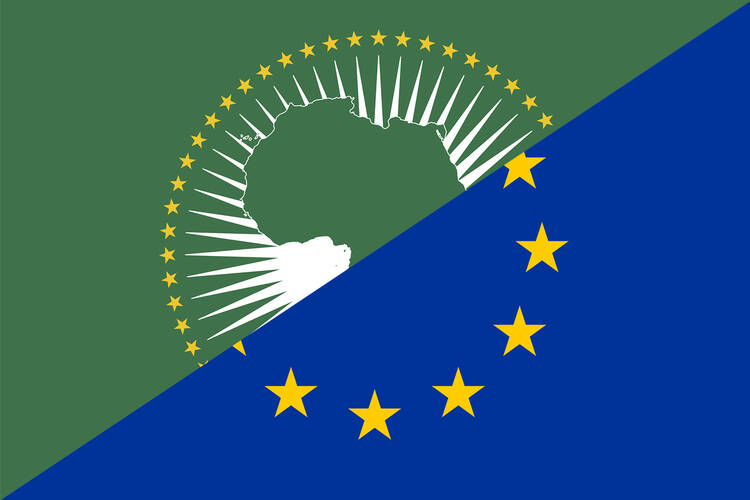 Catholic bishops in Africa and Europe urged national leaders to refocus their partnerships on mutual respect, environmental stewardship and human dignity, as politicians converge for a joint meeting on Wednesday (May 21) in Brussels.
Catholic bishops in Africa and Europe urged national leaders to refocus their partnerships on mutual respect, environmental stewardship and human dignity, as politicians converge for a joint meeting on Wednesday (May 21) in Brussels.
At least 80 foreign affairs ministers from 80 governments, all members of the African Union and the European Union, will convene for the third European Union – African Union Ministerial Meeting. They will examine cooperation between the two continents over the last 25 years on issues like peace, security and governance; multilateralism; prosperity; and people, migration and mobility.
Bishops from the Symposium of Episcopal Conferences in Africa and Madagascar, a Catholic agency of bishops from Africa, and the Commission of the Bishops’ Conferences of the European Union, its counterpart in Europe, said Africa does not need charity, nor does it need to be a battleground for external interests.
“What it needs is justice,” the bishops said in a joint statement May 15. “What it needs is a partnership grounded in mutual respect, environmental stewardship and the centrality of human dignity.
“Land, water, seeds and minerals the very foundations of life seem to be once again treated as commodities for foreign profit rather than a common good to be stewarded with care,” the bishops said in the statement, adding they believed Africa was being asked to sacrifice its ecosystem and communities to help meet the de-carbonization goal.
They called on national leaders to listen to African civil society, Indigenous peoples and faith communities as co-creators of policy.
The bishops said they want the ministers to support agriculture that breaks dependency on imported fertilizers, chemical inputs and genetically modified seeds as a way of protecting farmer-managed seed systems — the repositories of Africa’s agricultural biodiversity and a key to food sovereignty.
They also sought an immediate ban on exporting and using highly hazardous pesticides in Africa, which according to the United Nations cause “disproportionate harm to environment and human health.” Chemicals banned in Europe for their risks to health and ecosystems were still being sold to African farmers, the bishops said.
Recently, foreign investors and financial institutions have acquired large-scale lands on the continent for agricultural production, and bishops warned these actions were taken without free, prior and informed consent.
The bishops’ statement resonated with faith activists. Francis Kuria Kagema, general secretary of the African Council of Religious Leaders-Religions for Peace, a coalition of African faith groups and leaders, backed the call for a paradigm shift. He stressed that successful partnerships between the continents are anchored on shared sacred engagement and economic restorative justice and are devoid of exploitative tendencies.
“Europe has hugely benefited from the people and resources of Africa in an unequal relationship,” Kagema told RNS on May 16. “They must not negotiate on an equal reciprocity, but one that seeks to create shared prosperity and flourishing while respecting, and in some instances, restoring damaged ecosystems.”
The understanding that the Catholic Church must hear both the cry of the earth and the cry of the poor, as inspired by Pope Francis’ encyclical “Laudato si’,” was loud and clear, the church leaders said. Climate change is disproportionately wreaking havoc on those who depend on the land in Africa, despite the continent contributing the least to worldwide greenhouse gas emissions. They also said soil degradation, poisoned water and the loss of biodiversity, due to climate change and development, is harming the continent.
“Hunger in Africa is growing, not because we lack food, but because we have allowed systems to dominate that put profit above people and that treat the agricultural process not as a way of life,” the bishops said.
Ashley Kitisya, Africa programs manager at Laudato Si’ Movement, a global Catholic climate justice network, said the bishops’ call was a prophetic move toward justice, dignity and integrity in the evolving relationship between Africa and Europe.

